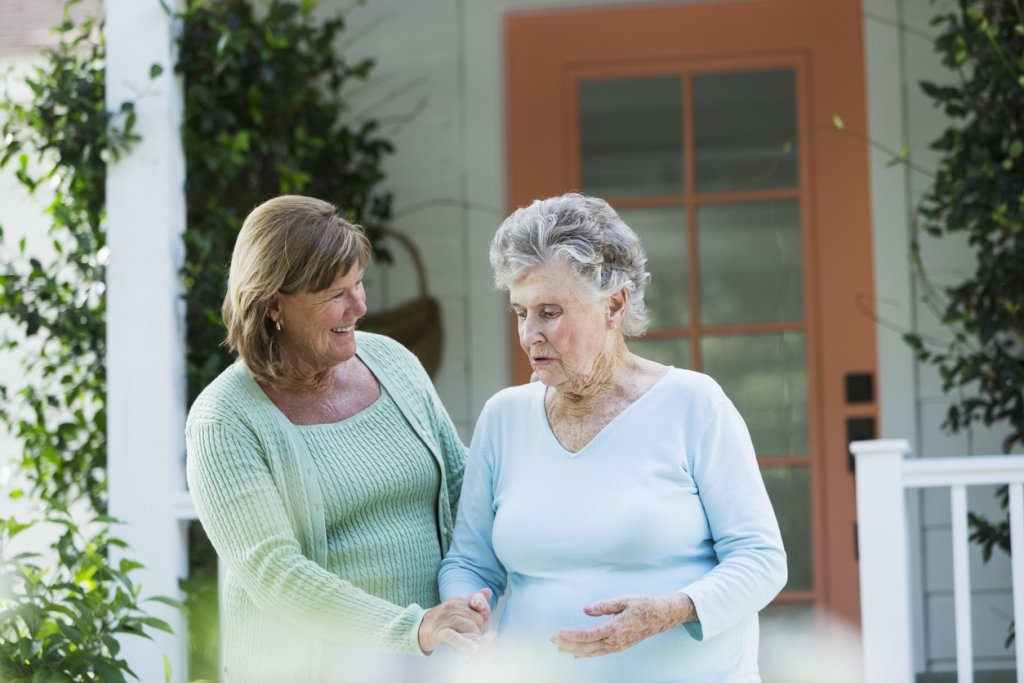As we get older, our bodies and especially our brains, start to change in ways we may not expect. We become a little more forgetful, a little slower, and unfortunately, a little less steady on our feet. Believe it or not, imbalance can actually put you at risk for a brain injury. It’s as simple as losing your balance, falling to the ground, and not bracing yourself quickly enough. It’s so prevalent in women as we get older that The Mayo Clinic recommends doing simple things like reducing clutter in your home, wearing non-slip shoes, doing light exercise, removing hazards from high traffic areas, using a shower seat and adding night lights in halls and bathrooms to help you find your way. Additionally, the National Institute of Aging has some tips for making your home as fall-proof as possible.
People of all ages getting brain injuries are more common than you might think. According to the U.S. Centers for Disease Control and Prevention, there are approximately 1.5 million people in the U.S. who suffer from a Traumatic Brain Injury (TBI) each year. 50,000 people die from TBI each year and 85,000 people suffer long term disabilities. In the U.S., more than 5.3 million people live with disabilities caused by traumatic brain injuries.
 And unfortunately, it’s not only ourselves that we need to worry about. As women, we are often the nurturers in our family and often end up caring for our elderly parents, which can be a challenge. A UT Southwestern study shows falls cause more than 80 percent of the traumatic brain injuries seen in adults age 65 and older. Doctors say educating yourself on how to keep our loved ones from falling is very important. We need to realize that it can be hard for an elderly parent to let go of control, especially when they might need help with something as routine as taking a bath or getting dressed.
And unfortunately, it’s not only ourselves that we need to worry about. As women, we are often the nurturers in our family and often end up caring for our elderly parents, which can be a challenge. A UT Southwestern study shows falls cause more than 80 percent of the traumatic brain injuries seen in adults age 65 and older. Doctors say educating yourself on how to keep our loved ones from falling is very important. We need to realize that it can be hard for an elderly parent to let go of control, especially when they might need help with something as routine as taking a bath or getting dressed.
On top of that, many women in their fifties are still working and might not be able to see everything a parent is doing at home during the day if they don’t have a 24/7 caregiver. If you suspect your relative has fallen and received a brain injury, some symptoms to look out for are headache, confusion, lethargic, mood swings, changes in sleeping routine, slurred speech, vomiting or convulsions. Some ways to prevent a fall and serious brain injuries could include low-impact activities like water aerobics or tai chi to help keep their bodies strong while improving their balance.
It’s also important to keep in mind that when you’re trying to help your loved one, you’re often going to find push back. It’s best to have an open dialogue about their health and explain that you’re taking the necessary steps to keep them safe. You should also consider that your relative could be dealing with some fear regarding their mobility, including the fear of falling as failing eyesight, hearing/balance issues, dizziness, confusion, changes in medication, changes in sleeping patterns and delayed reflexes all become part of the problem.
Whether it’s for you or your aging loved one, preventing falls and especially severe head injuries comes down to awareness and realizing that we can’t control everything. If a fall does occur, the National Institute of Health recommends a few tips: take a few moments to calm down, stabilize yourself after the shock of falling, then crawl to a stable chair and pull yourself up. Regardless of if you’re a caregiver or not, keeping yourself safe has to be the number one priority, because if we can’t care for ourselves, we can’t care for others.







